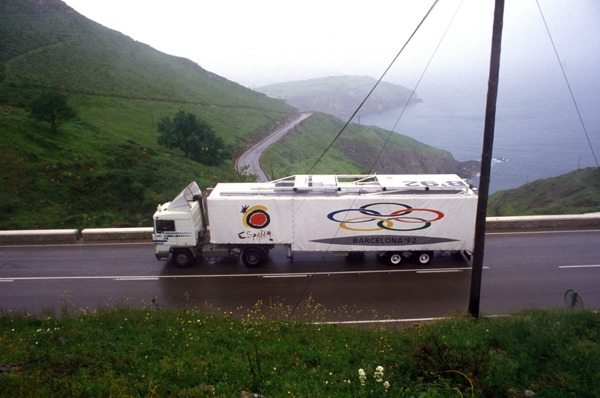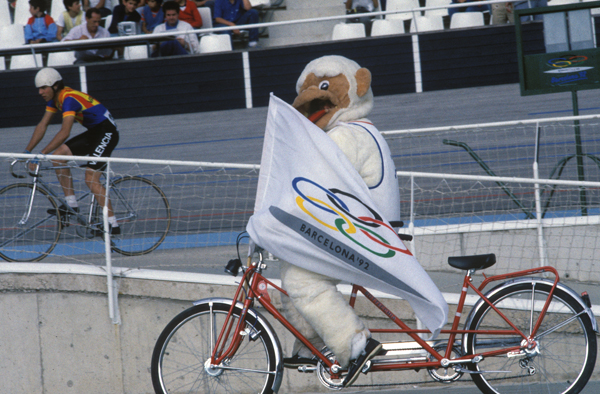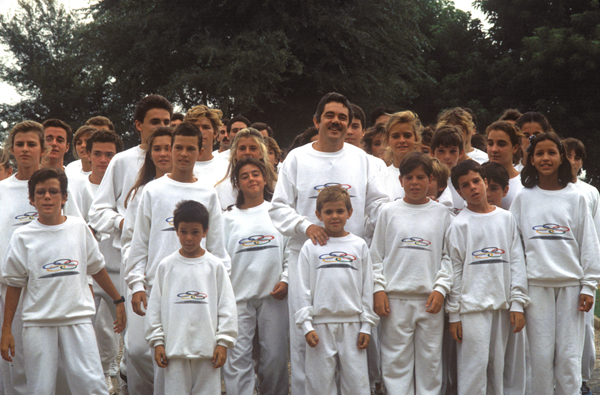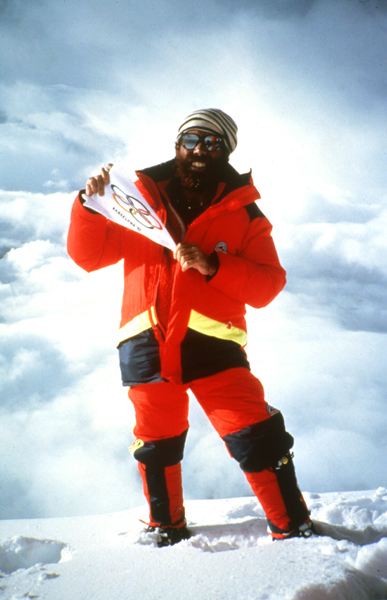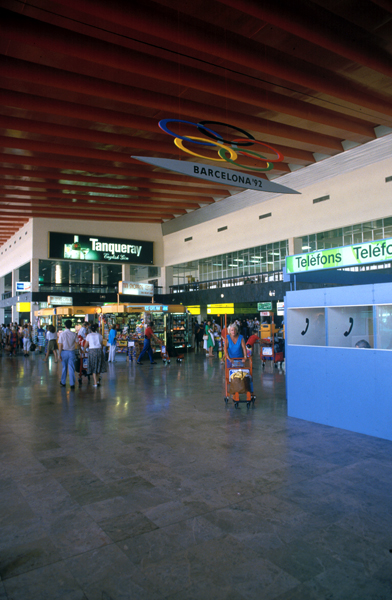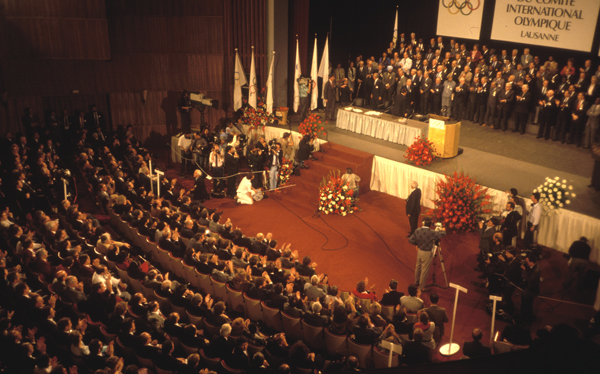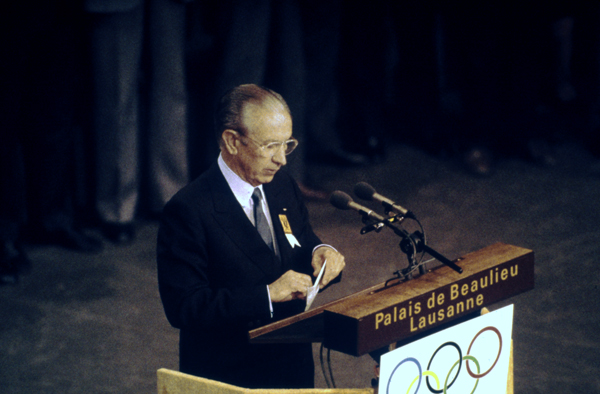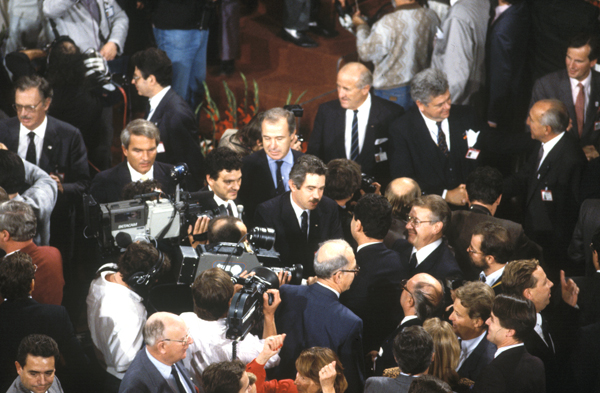Bid and election
The bid process for Barcelona to host the XXVth Olympiad of the modern era began on 31 January 1981, when Narcís Serra publicly announced the city’s will to put itself forward as a candidate. That process lasted until Barcelona was nominated the host city of the 1992 Olympic Games on 17 October 1986. The first bid document was drafted in 1982. It took the form of a book entitled Barcelona pretén els Jocs de 1992. In 1983, the first projects commissioned by the then Mayor of Barcelona Pasqual Maragall got underway. The bodies responsible for drafting them were the City Council’s Olympic Office and the Olympic Bid Board, with the institutional representation of Barcelona City Council, the Government of Catalonia and the Government of Spain.
The Office was the executive body of the Olympic Bid Board in two respects: the coordination of all city preparation and urban planning projects, such as those specifically targeting the organisation of the Olympic Games, and the drafting of the Candidature Dossier in consequence. The Dossier was the document that accredited the city’s firm intention and commitment to host the 1992 Olympic Games by providing guarantees covering all aspects, from security to historical significance, with urban development, the commitment to Olympic values, and the project’s financial viability in between. The drafting of the Dossier was completed in 1986, ready for it to be submitted on 1 March in Lausanne by Pasqual Maragall. It was made available to the media a fortnight later.
After Barcelona had gone through to the final round of the bid process alongside Amsterdam, Belgrade, Birmingham, Brisbane and Paris, it was at the 99th Session of the International Olympic Committee (IOC) being held in Lausanne where, on 17 October 1986, Juan Antonio Samaranch announced that Barcelona had won the bid to host the Games of the XXVth Olympiad of the modern era. The final bid strategy aimed at winning involved a public relations campaign in support of Barcelona’s bid around the Swiss city, with a major institutional presence at trade fairs and exhibitions. The goal was to create a highly favourable atmosphere. One of the physical elements of the campaign that stood out most was a map of Europe on which all the cities bidding to host the Olympic Games lit up, spread throughout the continent and where visually had an imbalance regarding Spain, because there had never held the Olympic Games and, therefore, was dark.
Bidding results, votes:
- Round 1: Barcelona (29), Paris (19), Belgrade (13), Brisbane (11), Birmingham (8), Amsterdam (5, out)
- Round 2: Barcelona (37), Paris (20), Belgrade (11), Brisbane (9), Birmingham (8, out)
- Round 3: Barcelona (47, chosen), Paris (23), Brisbane (10), Belgrade (5)
After being awarded the Olympic Games, Barcelona, the IOC and the Spanish Olympic Committee entered into an agreement to sign the Olympic Charter and formalise the main obligations stemming from that award. This meant that Barcelona had to undertake specific commitments to the Olympic Family, which had to be dealt with in accordance with the IOC’s stipulations. A series of financial and commercial obligations was also established, such as the fact that 3% of the profits obtained from the exploitation of Olympic symbols and signs had to be transferred to the IOC. Once the Olympic Games had ended, other obligations included the submission of the whole information technology system to the IOC and the production of an Official Report. All of the above issues were laid down on the understanding that a local organising committee would be formed within a six-month period. That committee was, of course, the Organising Committee for the Barcelona’92 Olympic Games (COOB’92).
Selected resources
Com hem guanyat els Jocs Olímpics
COOB’92 (1987) : Com hem guanyat els Jocs Olímpics : llibre-catàleg de la Mostra sobre la història de la candidatura… Barcelona: COOB’92
Anteproyecto candidatura : Juegos Olímpicos Barcelona 1992
Oficina Olímpica Barcelona’92 (1983) : Anteproyecto candidatura : Juegos Olímpicos Barcelona 1992. Barcelona: Oficina Olímpica
Barcelona pretén els Jocs Olímpics de 1992
Barcelona pretén els Jocs Olímpics de 1992. Barcelona: Ajuntament de Barcelona, 1982
Ara, Barcelona
Sentís, Carles, 1911- (1986) : Ara, Barcelona. Barcelona: Ketres
In the repository
In the Municipal Contemporary Archive, you can consult the administrative and management documentation generated on this topic by the Organising Committee Barcelona’92, SA (COOB’92), Holding Olímpic SA (HOLSA), Anella Olímpica de Montjuïc SA (AOMSA) (Olympic ring), Vila Olímpica SA (VOSA) (Olympic village) and the Institut Municipal de Promoció Urbanística SA (IMPUSA) (municipal Institute of urban development).
If you need further information on the collection, read the collection guide.
In the library
In the libraries of the study centres of the Barcelona Olympic Foundation (FBO) and the Autonomous University of Barcelona (UAB) you can find the selection of listed documents and other bibliographic materials on the subject.
If you are interested in knowing more about our Olympic collection, you can consult the Union Catalogue of Catalan Universities (UAB collection) or contact us by e-mail (FBO collection).
Sports in pictures
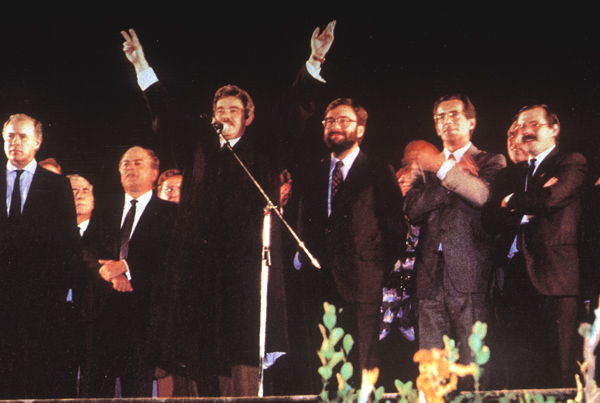
If you are interested in images of the Olympic and Paralympic Games of Barcelona’92, the Image Service of the Olympic Foundation of Barcelona will help you identify the images that satisfy your needs.
The Foundation manages the official image archive of the Barcelona’92 Games. You can contact them by email to request more information about the services provided and the collection of images. In this page, we offer a selection of images on the event.



